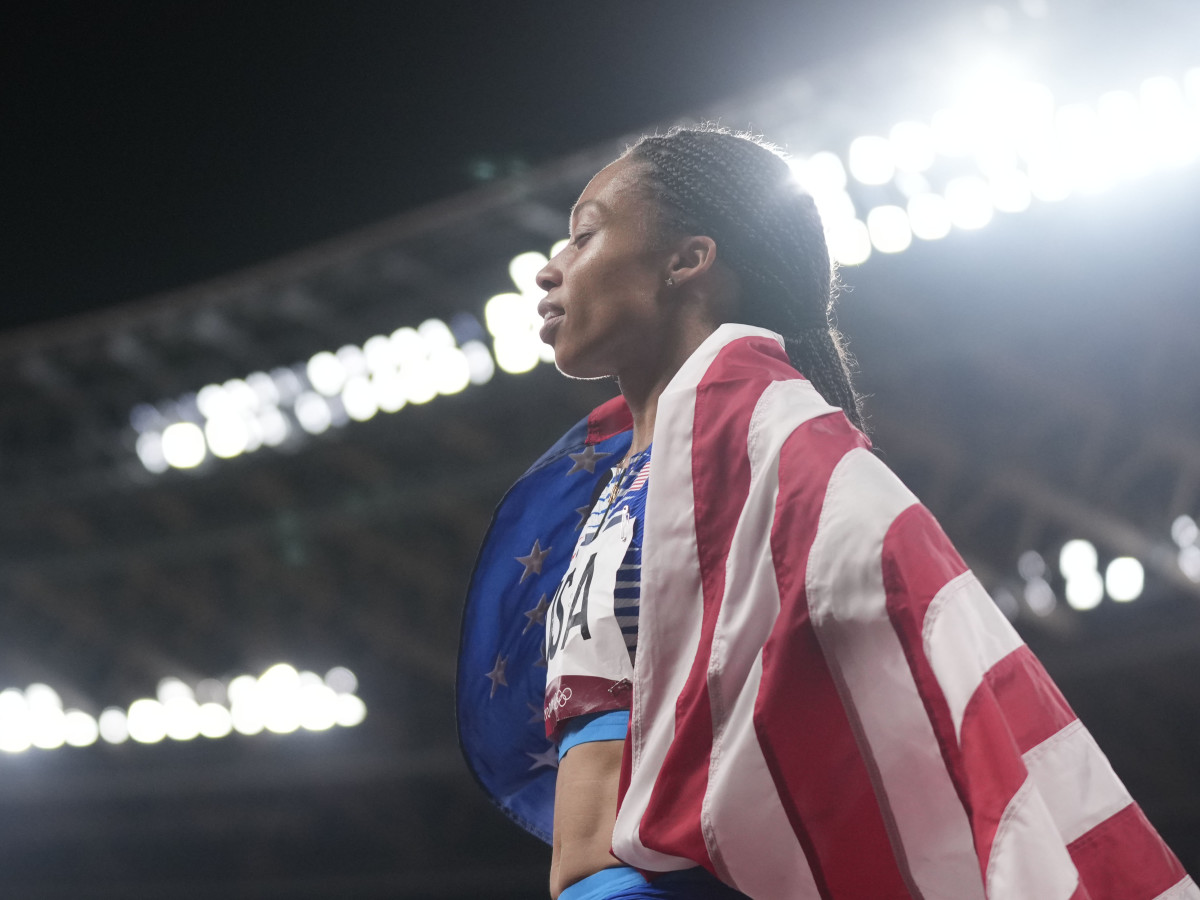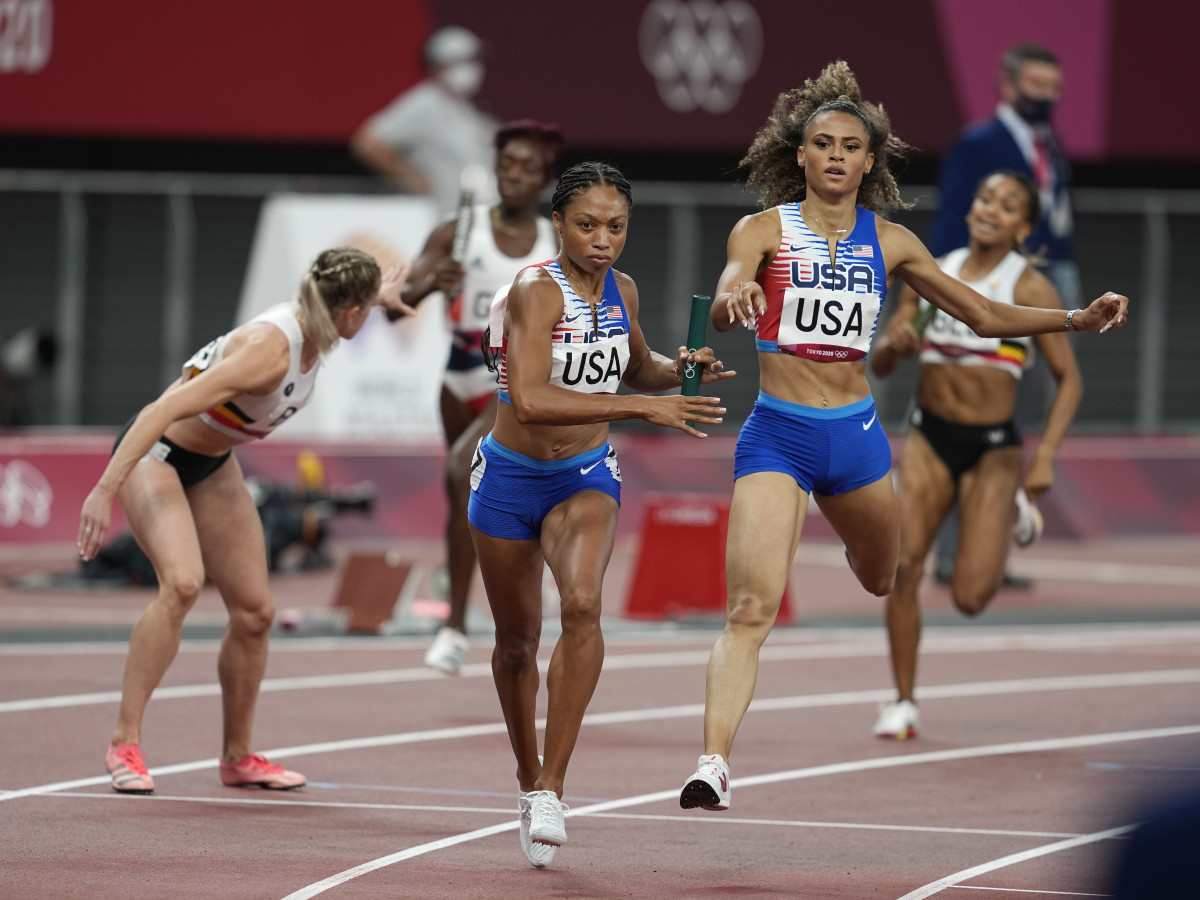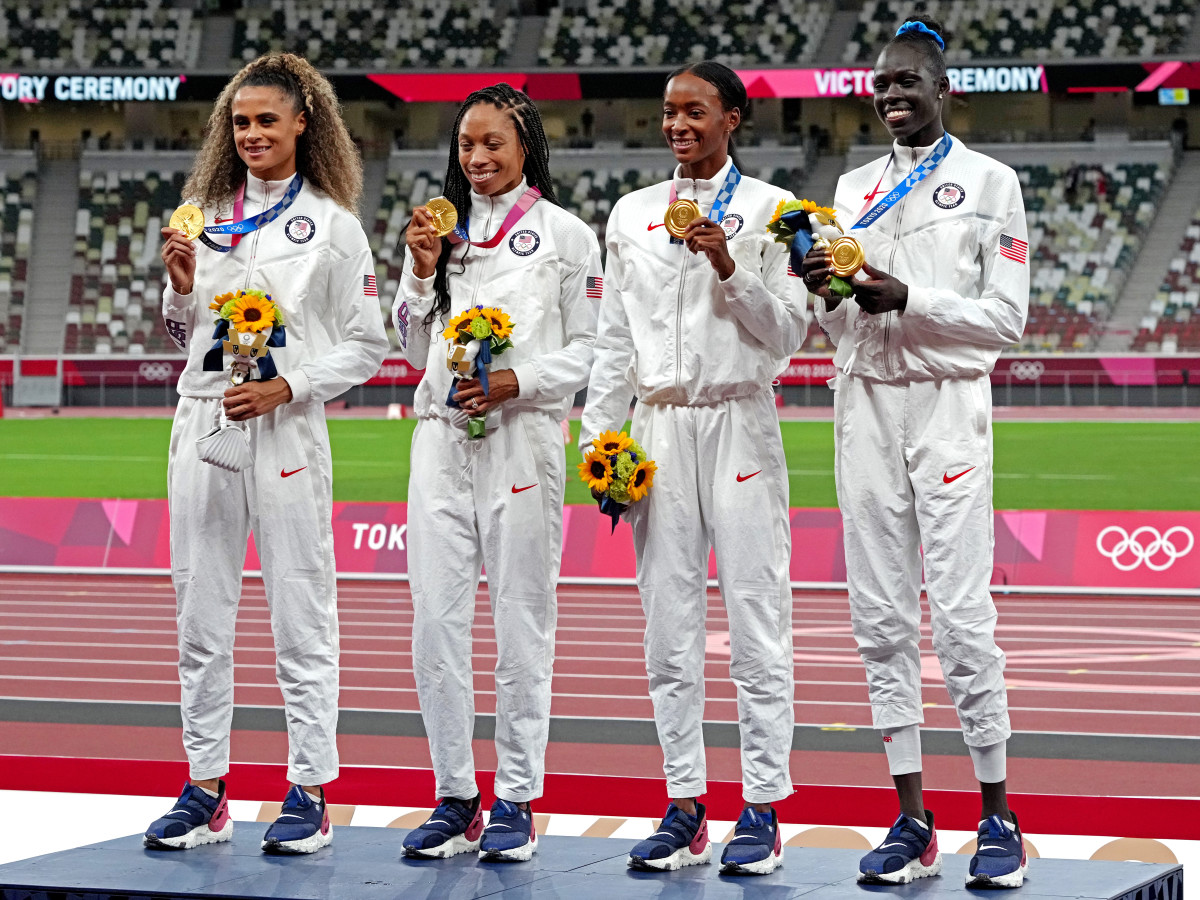Allyson Felix's Dignified Finish Sets Up a Promising Future for U.S. Women's Track

TOKYO — With Olympic history only four laps away, U.S. track officials looked at one final opportunity for Allyson Felix to win an 11th medal and made the only appropriate decision. They would maximize her chances. They would assemble a 4x400-meter dream team. They would give her the sendoff she deserved, the medal that would break her tie with Carl Lewis, while leaning into the symbolism like a sprinter at the finish line.

None of the women chosen would say afterward exactly when they found out, only that they were “honored” and “thrilled” and “aware” of what it meant the moment that they did. “A once-in-a-lifetime opportunity” is what Sydney McLaughlin, who turned 22 on Saturday, called her birthday present, this chance to run a race now sealed in Olympic lore. Meanwhile, track legend Michael Johnson spoke for an entire sport when he tweeted out the lineup—McLaughlin, Felix, Dalilah Muhammad and Athing Mu—and a fire emoji.
Nothing else needed to be said.
What happened next hammered an exclamation point on track and field here at the Olympics. For over a week, already-fast runners used a track designed to maximize speed to break world records on what seemed like a nightly basis. The heat that made National Stadium into a cauldron of Olympic sweat seemed appropriate, because of times blazing enough that feet threatened to start fires.
So here it was, the final women’s race of the 2020 Olympic Games, the one that actually took place in 2021, delayed by a global pandemic, absent Usain Bolt. Anyone worried about the star power or the absences, had already been relieved of their concerns. And that point was driven home by Felix on Friday night, in a 400-meter final many doubted she would qualify for. Instead, she ran her fastest race in six years and the fastest-ever 400 for a woman over 35 years old. She also sprinted straight into the record books, tying Lewis for the most track medals.
That set up the 4x400 relay, an event the United States has won in every Olympics since 1996, back before McLaughlin or Mu had even been born. McLaughlin led off, staking the Americans a lead that would never seriously be threatened. Felix took the baton on a smooth exchange and began her final Olympic lap, running just as smoothly, if not quite as quickly, as in her first one, way back in 2004. She looked … dignified.
By the time she handed the baton to Muhammad, Felix had extended the advantage. As if not to be outdone in the female-sprinters-over-30 competition, Muhammad turned in the fastest split, handing off to Mu. And when Mu breached the final straightaway, she led by half a football field, her closest competitor having not even reached the final curve. Mu could have sat down, had tea, sent an email and meditated, then still climbed to her feet and still triumphed, while waving at the empty stands.
The women gathered in a circle here; they later revealed that they had said a prayer. Had the stands been packed with fans they would have roared, every human with a heartbeat on their feet, showering Felix and her dominant teammates with a standing ovation.
The history hung heavy in the air, like the humidity, but it no longer felt like a weight. Felix’s 11th medal gave her the second-most, as in, in the history of Olympic track and field. She stands only one behind Paavo Nurmi, the Flying Finn. After Saturday, she moved in front of an icon, Lewis, overtaking him for the most track and field medals for an American, man or woman.

The night only added to Friday’s run to immortality for Felix, after all the doubts she conquered, especially her own; after her daughter’s premature birth and her struggles with Nike, the company that saw her in motherhood and heartlessly offered her a reduced deal. She started her own shoe line, Saysh, and went public with her stances, protesting police brutality and shining a needed spotlight on the poor treatment of women in track and field. She left her daughter at home in pursuit of history, because she had to, for herself and for her Cammy and for moms across the world.
“I’m absolutely where I’m supposed to be,” she said in the aftermath, while standing next to another American track pillar in Muhammad and two of the brightest stars who are poised to take their place. These women will be better off, perhaps taken more seriously, maybe not offered reduced contracts, because of Felix and her fortitude, her Mom Strength.
She wasn’t alone in being right where she should have been Saturday. The U.S. men’s 4x400-meter relay team needed to seize gold to avoid the entire U.S. men’s sprint team becoming an embarrassing historical footnote. In every Olympics, except for 1980, when no one sprinted on a team that boycotted the Moscow Games, at least one American or one American men’s relay had left an international city with a gold. Most times, the U.S. male sprinters won several, their dominance expected. But none had won an individual gold medal here.
That left the 4x400 men chasing another kind of history. Rather than a pursuit similar to Felix’s undertaking, though, they did not seek this kind of mark but rather preferred to avoid it. The U.S. men had disappointed in Tokyo, particularly the stacked 4x100-meter team that failed to even advance from its qualifying heat. But complaints over the overall success of the male sprinters did seem a little overstated. They had won silvers and bronzes, had placed in the 100 meters (silver), the 110-meter hurdles (also silver) and the 200 meters (silver and bronze). They had even seen Rai Benjamin break the world record in the 400-meter hurdles—and still lose.
They had compiled that collection despite their youth movement, what Benjamin would call late Saturday a “time of transition.” Noah Lyles (bronze, 200), Grant Holloway (silver, 110 hurdles) and Michael Norman (fifth, 400 meters) all made Olympic debuts. Holloway waxed forever in interviews about how much his silver “sucked.” Lyles called his bronze “boring.” That’s a good thing, on both counts, because it portends well for the future of U.S. track and field on the men’s side.
The same could be said for Saturday's race, which the U.S. team won. Felix made history, the colossal, remember-it-forever kind. The U.S. men avoided a historic low; it wouldn’t have resonated exactly the way that Felix’s two-decades-of-triumphs did. But it would have come up, every year, every cycle, until another team did worse.
Afterward, Benjamin described last week as emotional, for all of them. He noted that anyone missing Tyson Gay or Justin Gatlin should realize something: They’re not coming back. But this is track and field, a sport that advances in something more like dog years, because old people simply cannot run as fast as they could when they were young.
Felix, of course, turned in a timeless exception on Friday night. Speaking of, Sifan Hassan, an Ethiopian refugee who now competes for the Netherlands, won the 10,000-meter title Saturday, adding to her 5,000-meter gold and 1,500-meter bronze from earlier this week. Her Olympics will also be remembered for decades. She ran so hard that she appeared to almost pass out after her race.

Even then, after everything, after the historic race and the large margin, the Americans' most important handoff on Saturday took place not on the track but off it. Felix finished her Olympic career in style. She is now to heavy medals what Metallica is to heavy metal. But she stood just a touch away from her teammates in the interview area beneath the stadium. Perhaps this was unintentional. But it sure looked like the grace of one of sport’s great champions, an 11-time medalist ceding the spotlight to the future, having shown the youngsters how to compete and how far they can go.
More Olympics Coverage:
• USA Men’s Basketball Overcomes Early Obstacles to Win Special Gold
• Ross, Klineman Win Beach Volleyball Gold for Team USA
• This Is Not How Japan Envisioned Karate's Moment at the Olympics
• Olympic Bronze, Rediscovered Joy and a Look Ahead for the USWNT
• With History on the Line, Allyson Felix Did What No One Expected From Her
